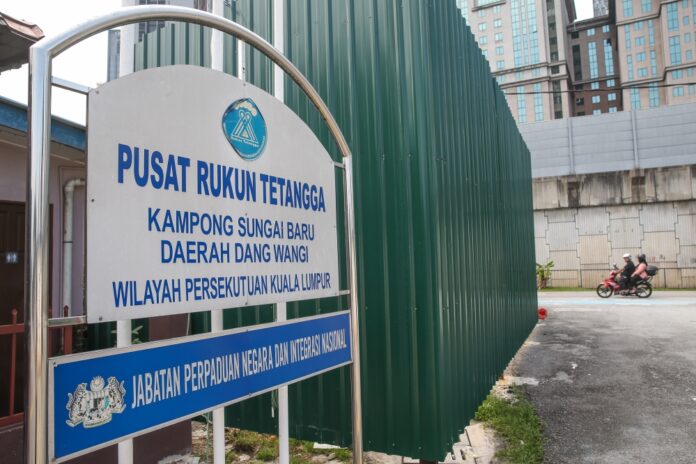KUALA LUMPUR, April 28 — More than four decades after redevelopment plans were first proposed, Kampung Sungai Baru, located on prime real estate in the heart of the Malaysian capital, remains embroiled in a contentious standoff between residents, developers, and the government.
Legal challenges and compensation disputes continue to stall progress, turning the historic Malay enclave into a flashpoint over urban renewal.
Here’s what we know so far.
What’s happening in Kampung Sungai Baru?
Several flat residents have refused to vacate their homes despite directives from Kuala Lumpur City Hall (DBKL) and ongoing demolition work by developers.
They argue that DBKL’s eviction order is invalid pending a Court of Appeal decision on their challenge to overturn a High Court ruling favouring the developer.
Why are residents asked to leave?
The demolition is part of a broader initiative to redevelop Kampung Baru into a mixed-use area featuring commercial, financial, service, cultural centers, and upscale residential properties.
The redevelopment plan is said to involve at least 67 terrace houses and 14 apartment blocks, known as Pangsapuri Sungai Baru, situated adjacent to the Ampang–Kuala Lumpur Elevated Highway (AKLEH).
While the majority of the 108 property owners have agreed to the redevelopment and accepted the compensation offer of RM400 per square foot, a minority contend that this valuation undervalues their properties.
There is some ambiguity over the number of affected residents as well, with some news agencies reporting the redevelopment involves 64 terrace houses and 264 flats, amounting to 382 housing units.
Some news reports also suggest that market rates in the area exceed RM1,000 per square foot.
Government’s position
Federal Territories Minister Datuk Seri Dr Zaliha Mustafa has defended the compensation package, emphasising that it includes replacement units, moving costs, ex gratia payments for home renovations, and temporary rental allowances.
She advocates for a balanced solution that considers the interests of all parties, though specifics remain unclear.
But former Federal Territories Minister Khalid Samad disagrees with the current valuation.
He asserts that compensation should be set at RM1,000 per square foot, aligning with valuations offered during the first Pakatan Harapan administration.
Titiwangsa MP Datuk Seri Johari Abdul Ghani, who has been actively involved in negotiations, plans to hold a press conference this week to clarify his stance.
He has previously cautioned residents against accepting the developer’s offer, citing concerns over the undervaluation by DBKL’s land and mine department.
However, acknowledging that up to 95 per cent of residents have agreed to the redevelopment, he warns that further delays would prolong rental periods and postpone the delivery of promised properties, which he deems unfair.
Johari has committed to advocating for a resolution in the upcoming Parliament session as Kampung Baru falls within the Titiwangsa parliamentary constituency.


